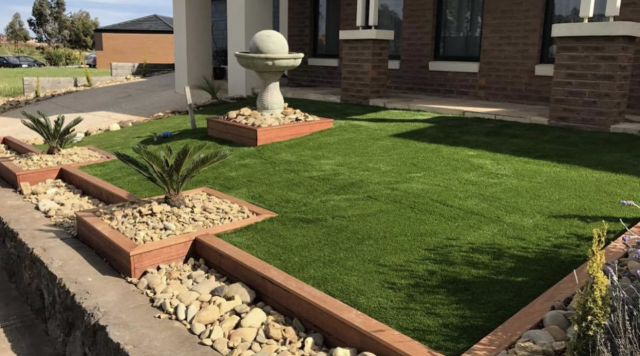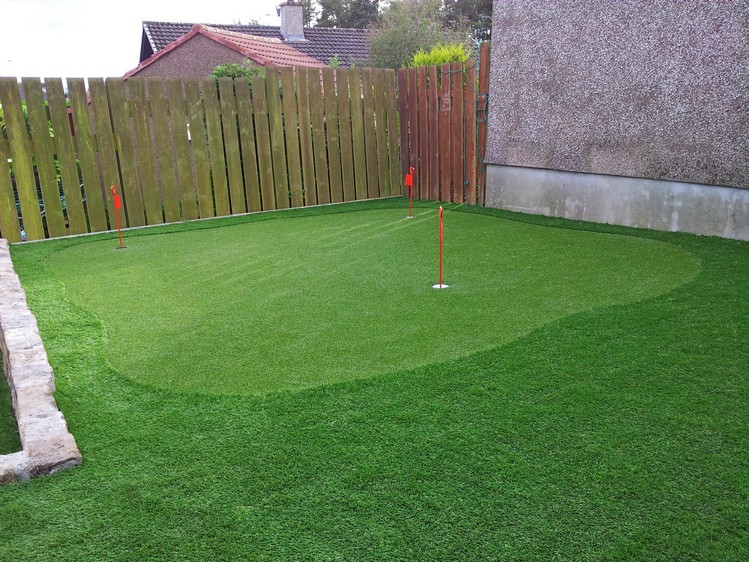Having artificial grass in your garden can save you lots of time, money and effort. Because it doesn’t require mowing, watering and fertilizing, you can save some money on your electric and water bills, and you don’t have to spend precious hours maintaining it. However, one of its drawbacks is its rain absorption.
While it can imitate the feel, texture, and appearance of real grass, artificial grass is still artificial. Unlike real grass, artificial grass can’t, won’t, and doesn’t absorb rain, or any water that you will pour into it. Instead, it passes down directly to the soil, which is why water from artificial grass drains quickly. These holes can be found between the blades of the grass.

Aside from that, since artificial grass lays down on top of the soil, the soil can be undernourished, since it does not receive enough sunlight and air. Since artificial grass does not absorb water, water from the rain goes to the drainage system and into the ocean unfiltered. Real grass and most of the plants have natural filters which remove bacteria or pathogens that can cause diseases, and since artificial grass is made of plastic, it can’t filter out those because it does not have roots.
Aside from having poor rain absorption, artificial grass can create a warm and humid temperature within it, creating ideal conditions for bacteria, mostly harmful ones, to breed and multiply. This is also because artificial grass can’t filter out bacteria and microbes, so they tend to stay in your lawn. Better be ready with your sanitizers and chemical mixtures to prevent this from happening. This is also imperative especially when you have pets in your house.
Although it requires less maintenance and lower running costs, artificial grass, when not maintained and cleaned properly, can be a home to a handful of bacterias that can affect your pets, your children and even you. So, the right thing to do is always check your artificial grass and regularly spray some sanitizers and cleaners to prevent bacteria from multiplying.
So, if you are planning to install artificial grass in your garden, it’s wise to follow the old adage that ‘prevention is better than cure’.



